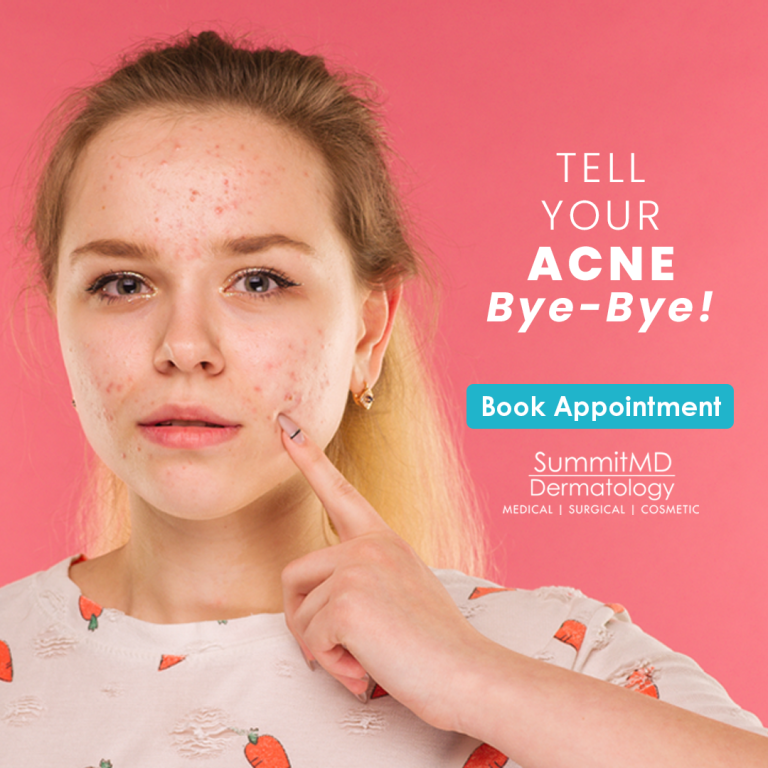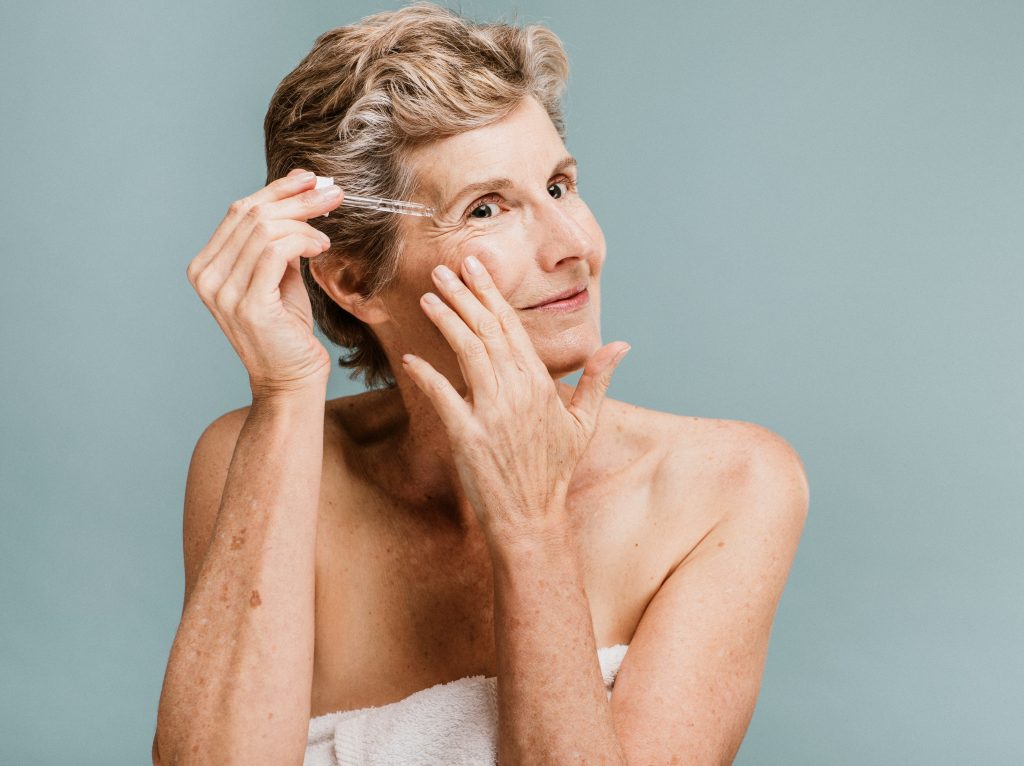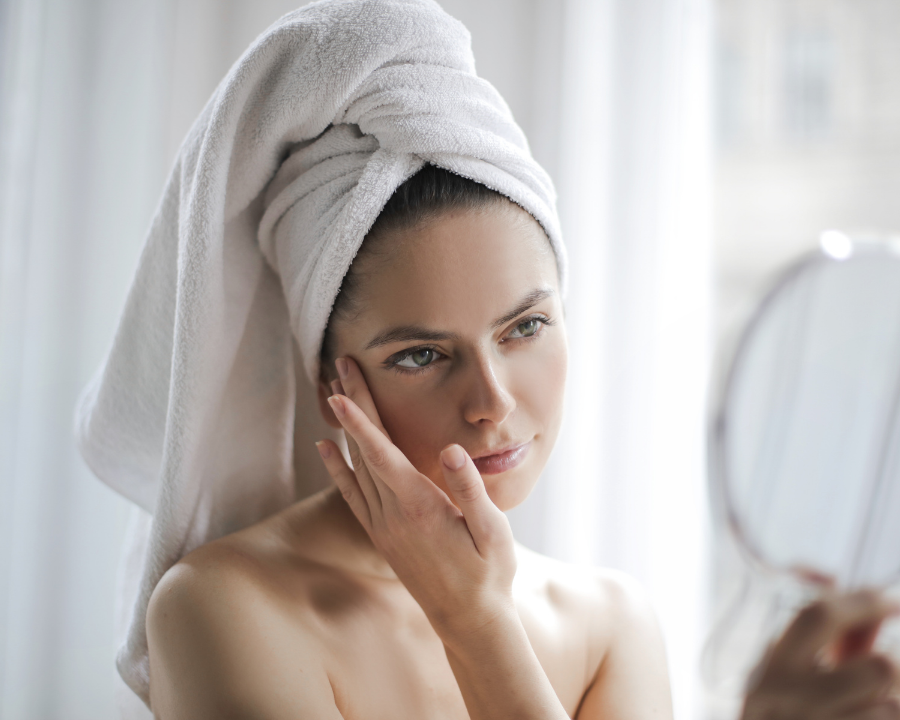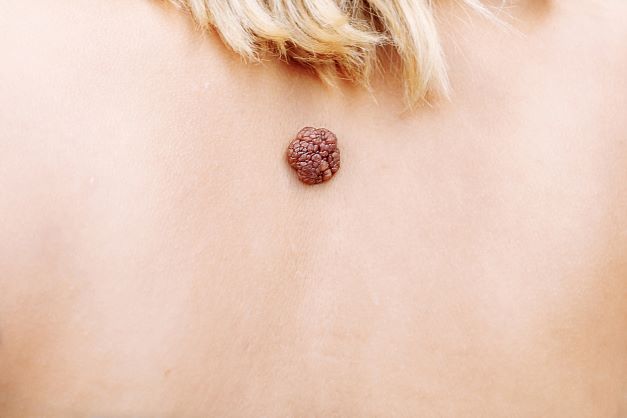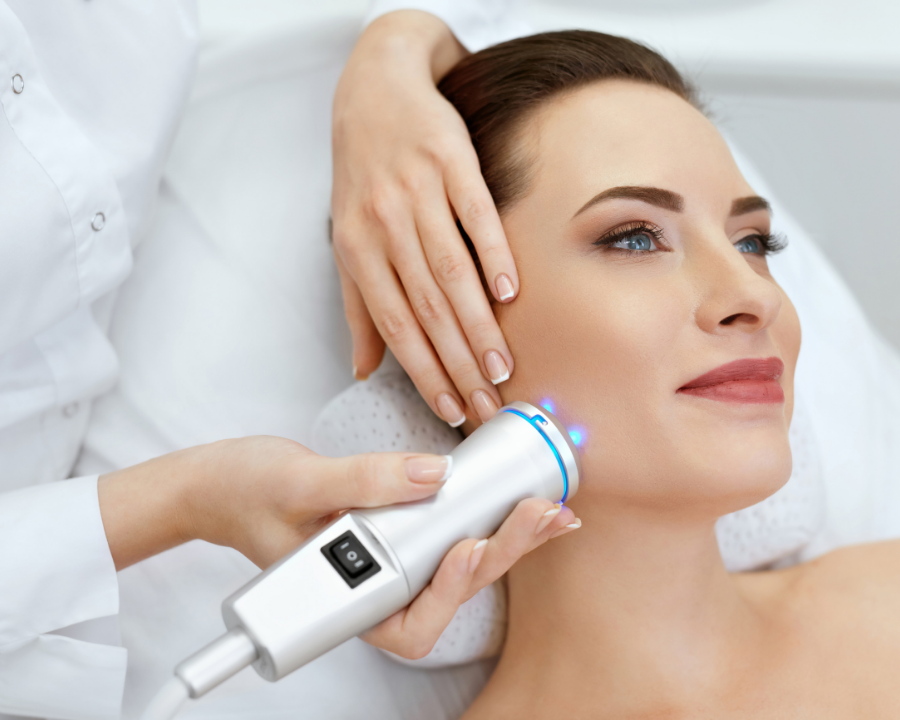Acne
Acne, also known as acne vulgaris, is a very common skin condition that affects teenagers and adults of all ages. Besides appearing on the face, it can also appear on the back, chest, and shoulders. Acne is an inflammatory disorder when hair follicles under the skin become clogged. Sebum, which is oil that helps the skin from drying out, and dead skin cells then clog the pores, leads to breakouts of lesions that are commonly called pimples or zits.
Who gets acne?
People of all ages and races get acne, although it is more common among teens and young adults. When acne appears during teen years, it is often more common in males. Acne can also continue into adulthood, and when it unfortunately does, it is often more common in women.
What types of acne are there?
When acne occurs it often causes several lesions or pimples. Dermatologists most commonly refer to enlarged or clogged hair follicles as comedones. There are 6 types of acne.
- Whiteheads are clogged hair follicles that stay beneath the skin and produce a white bump.
- Blackheads are clogged follicles that reach the surface of the skin and open up. They look black on the surface because the air discolors the sebum, many people believe it’s because they are dirty and this is not the case.
- Papules are inflamed lesions that usually occur as small, pink bumps on the skin and can be tender to the touch.
- Pustules or pimples are papules topped by white or yellow pus-filled lesions that may be red at the base.
- Nodules are large, painful solid lesions that are lodged deep within the skin.
- Severe nodular acne also called cystic acne is deep, painful, and pus-filled lesions.
What causes acne?
Acne often occurs when pores or hair follicles on the face, neck, or back become clogged with excess or trapped sebum (oil), dead skin cells, or built-up bacteria. Other causes of acne are:
- Naturally oilier skin
- Genetics
- More exposure to acne-causing bacteria
- Hormones during the onset of puberty, menstruation, pregnancy, and hormonal birth control methods may trigger acne breakouts
- Certain skincare product ingredients may worsen acne
- Dietary factors (protein supplements, dairy, high- starch foods may worsen acne)
Acne Treatment
Treating acne is a slow process that takes time and steps. There is no overnight cure, so you will have a customized treatment plan depending on the acne type and the severity of it. Some of the most effective acne treatments are:
- Benzoyl peroxide helps reduce the clogged hair follicles
- Oral and topical antibiotics which treat any infection in the pores
- Retinoids (retin-a, tretinoin, and differin) are derivatives of Vitamin- A that help unplug the blocked-up material in whiteheads and blackheads
- Extraction (acne surgery) is the removal of blackheads by using a small metal tool to unclog the blocked pores
Adult acne results are then further enhanced when adding an acne-clearing cleanser and lotion at home to your daily routine. It is important for patients to not pick or scratch at their acne because it can cause them to become inflamed and can lead to long-term scarring. Once your acne is controlled, additional acne scar and dark spot treatments can be started to further improve your skin’s appearance, which may include cosmetic procedures like acne peels and micro-needling.
View all articles about Acne.

